The OEM is investing in the development of existing locations and consolidating test and development operations to boost EV production across its global network
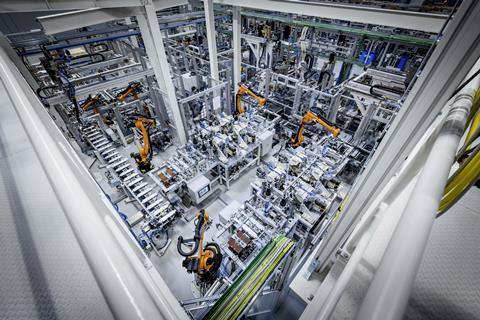
The OEM says it is investing a double-digit million amount to transform its Berlin-Marienfelde plant into a campus for developing, testing and implementing pioneering software applications for its global production network. In the future, e-mobility components will also be assembled in Berlin.
The plant will shift from producing conventional powertrain components into developing, testing and validating future software applications and concepts for the digital Mercedes-Benz ecosystem MO360 in a real production environment. The company says investments are planned to build a digital ramp-up factory with a number of state-of-the-art pilot lines and test cells. With the planned setup, the company will cover topics such as predictive maintenance for production by using artificial intelligence. The site will also become the MO360 training and qualification hub for all Mercedes-Benz plants worldwide.
Drive Systems Campus: Stuttgart-Untertürkheim
In another development, the OEM’s Untertürkheim site is to become a technology competence centre with a campus focusing on electric drive and battery technology, including the production of lithium-ion cells. It’s noted that the facility, the largest site in the company’s global powertrain production network, will receive a ‘three-digit million euro’ investment to become the Mercedes-Benz Drive Systems Campus. The site will focus on research, development and production ramp-ups of drive systems.
A new factory for the small-series production of future battery cells (starting operations in 2023) and a dedicated battery safety lab, will be added to Mercedes-Benz’s existing research and development activities in the field of battery technology. In terms of series production, the site will focus increasingly on electric drive components - battery and electric drive systems, while conventional engine, transmission and component production will gradually be phased out.
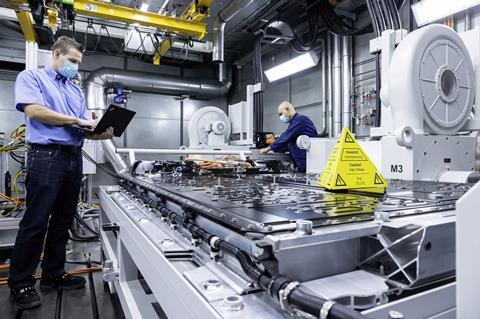
Additionally, the battery research and development activities currently located at the Nabern part of the plant, including various test benches, are to be located on the campus in the future. Further investments are planned in the significant expansion of the current cell technology centre in order to be able to cover the entire value chain of battery technology. Daimler says it will cover almost the entire field of battery technology at its Untertürkheim location – including battery systems which are manufactured at the site. The battery factory in Brühl nearby will produce batteries for plug-in hybrid vehicles from 2022. Starting this year, battery systems for the Mercedes-EQ model EQS will roll off the assembly line at the Hedelfingen part of the plant.
The next generation of electric motors are being developed in house and will feature inverter and high voltage technology. The manufacturing and assembly of electric drive systems parts for future vehicle models of the Mercedes-EQ brand will start at the end of 2024 and round off the product portfolio with the battery factories in Hedelfingen and Brühl. The previously planned production volumes of electric drive systems will double.
New “Technikum” technology centre for the development of electrified high-performance powertrains and electrical components
Mercedes-AMG says it is building a highly automated test area at Affalterbach for the development of electrified high-performance powertrains and electrical components. The new 5000 sq. m technology centre is planned to open in 2022.
The centre will include all-wheel test stands to allow the engineers to simulate real driving and environmental conditions. One of the test stands is additionally equipped with a climatic/altitude chamber. It uses a vacuum to reproduce an altitude of up 5000 metres above sea level at a temperature as low as -30°C. The company notes that by using the test stands, it reduces the number of kilometres driven in real-world operations.































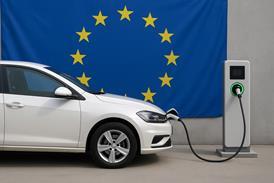
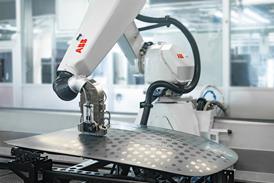


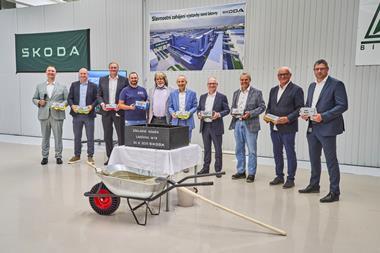
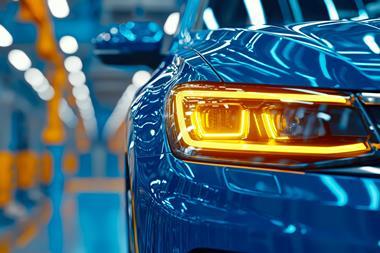
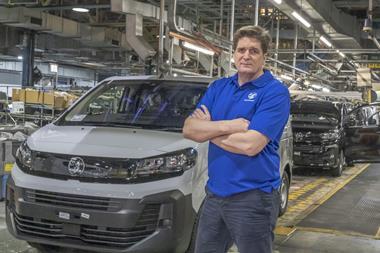
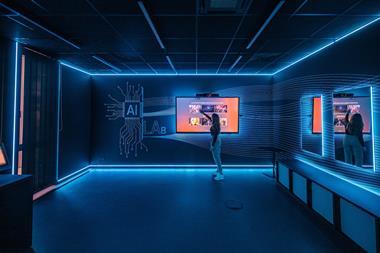



No comments yet